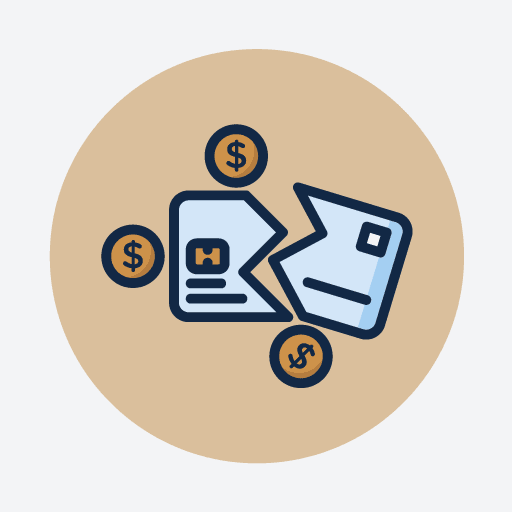
The Real Cost of Debt
I’ve recently been a close witness to the noble plight of a good friend choosing to rid his life of consumer debt. While many of the families we serve have managed to escape the bondage of expensive debt, many have not. Since we’re all endlessly susceptible to falling prey to master marketers of stuff and experiences bought on credit, this may be a good reminder to all of us.
While mortgage debt is still debt, there’s an argument to be made for it being not-so-bad debt. Therefore, let’s focus on the real culprits: credit card debt and even car loans. Paying 20% annual interest on a credit card balance is not ideal (that’s the current annual average credit card interest rate, according to creditcard.com). What’s more troubling is the part that most of us forget; in order to earn the money to make the payments on the credit card, we’re paying income taxes on our income first! A person who has an effective income tax rate of 15%, and has a credit card balance at 20% interest, is actually paying 35% to carry that debt!
As a result, the best investment you can make may be paying off credit card debt before even considering investing in the market.
For those who carry no credit card debt, but may be considering a car loan, you’re not off the hook. Here’s an example: a $60,000 new Ford F150 truck (guys love trucks!) requires that you pay sales tax on the purchase. In Kansas, that’s 6.50%. Add an income tax rate of 15% to generate the income needed to buy the truck in the first place, and the ‘cost’ has risen to $73,485. But wait, there’s more! What if you’d chosen to drive the old truck until the wheels fall off, as they say? Since there are still costs to keep the old truck, let’s assume you’d have avoided just $30,000 in expenses by keeping the old truck (as opposed to the full price of the new truck). Investing that $30,000 difference at a 6% average annual interest rate for ten years would net you $53,725.
In this example, choosing to buy the new truck for $60,000 actually cost you $127,210 over ten years. And that doesn’t even factor in finance costs of choosing to make payments on the truck!
So, here’s the deal. I’m not in any way mad at new cars. If you know me, you know that I love cars. I love hunting for them, buying them, and driving them. Cars are an incredible luxury we get to enjoy. My point here is that the things we buy are usually MUCH more expensive than we realize. And when retirees are seeking to ensure themselves a ‘successful’ retirement, expenses become a major factor to consider.
Enjoy life, drive nice cars if you like. Just consider the true cost of purchases and debt as you make your daily decisions. My friend and his wife have taken this to heart and are actually selling one of their cars and rolling every dollar they can into their debt-killing machine. They’ll be out of debt soon because they aren’t messing around, giving them much more money to invest when they’re done. And maybe that’s the moral of this story; messing with debt can cause all kinds of side effects, so treat it with great care and manage it wisely.
I didn’t intend to ruin your day if you’re in the market for a new car. Please keep in mind that I do this because I care. I’m just the messenger.

